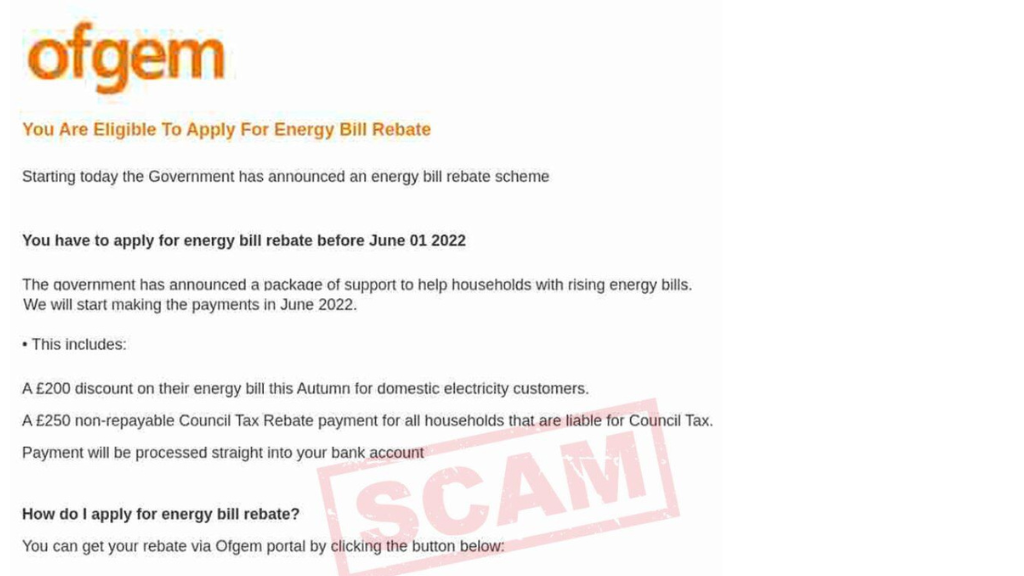Are you aware of the electricity bill scam increasing more and more? Scammers are attempting to take benefit of clueless people as energy costs increase. Their most recent scam involves forwarding a fraudulent text message link requesting that you register for the government’s energy award. Govt has also alerted the public to beware of the electricity bill scam.
Electricity Bill Scam

Scammers approach families claiming to be from the local authority before requesting credit card information to make an electricity refund payment. Fraudsters scam by representing Ofgem company via emails, SMS, and websites, asking customers to provide their banking information to be eligible for scam electricity repayments.
The latest energy scam takes advantage of the reality that the government’s energy incentive is currently being distributed, according to victims who’ve fallen into the hands of this fraud; passing out these data resulted in substantial amounts of cash being taken from their savings accounts immediately after the call.
While local governments are handling the local tax refunds, the Local Government Association has stated that authorities do not request bank information over the call.
The fraudulent emails read: “You are qualified for the government-supported energy refund,” urging individuals to press a scam link to “submit your form.” In reality, this refund will be automatically transferred to consumer invoices.
Action Fraud, the government reporting office for scams and cybercriminals, has recently issued a warning about a scam in which fraudsters duplicate prepaid meter tokens and sell them at a discount. It warned that, in reality, users would have to invest double for their electricity use after their legal provider had identified what was occurring.
Copies of this scam have also been delivered by text message and email. Refrain from reacting to these messages or emails; if you do not presently pay your local taxes by direct debit, you should wait for your letter from the authority, which will clarify how to get the refund.
Also Check: Pig Butchering Scam; What is it and How to Avoid it?
Precautionary Measures

Though cold calls tend to be the most common means of this fraud, you should also be suspicious of any demands for your financial and private information by text message or email.
Suppose you get a call, message, or mail that you believe is legitimate. In that case, the best way to do this is to obtain a telephone number for that agency from their website or a current letter and reach out directly to confirm its validity.
If you believe you have already supplied your information to a prospective fraudster, you should immediately alert your bank. You must also report the scammer to Action Fraud or the police.
Conclusion
Now you know how cybercriminals are taking advantage of every possible way to scam people. That is why it is essential to be cautious and aware of such scammers to secure yourself in this digital world full of cybercriminals.






0 Comments